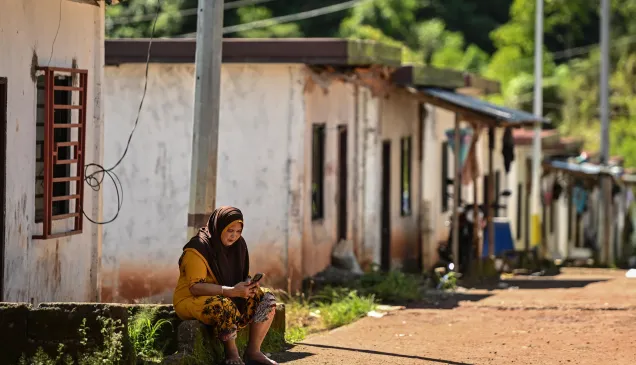Philippines: Project management course for jail managers
At the start of July, around 25 jail managers from the Bureau of Jail and Management and Penology (BJMP) gathered to explore and develop solutions to address humanitarian issues in places of detention. Vincent Ballon, deputy protection coordinator at the ICRC in the Philippines, sheds some light on the workshop and the pressing needs of detainees.
It was the first workshop of its kind for the ICRC in the Philippines. What was it about?
The workshop was about project-cycle management and jail system mapping for detention managers. It was aimed at providing jail managers with knowledge and understanding of how to effectively address humanitarian issues in detention. The participants enhanced their capacity to address humanitarian needs in jails through ascertaining problems, defining a vision and objectives, identifying results and indicators, and developing action plans.
Who participated in the workshop?
The BJMP and the ICRC jointly decided to carry out the workshop in Region 4A or Calabarzon, a region in the Philippines with the highest rate of overcrowding. Twelve participants came from the BJMP's national headquarters, six from the BJMP's office in Region 4A, and five were wardens from the jails in the region. One representative from the Department of Local Government Unit and two from the Public Safety College also attended the workshop.
What is the background to the workshop?
Together with the International Centre for Prison Studies, the ICRC has been delivering a version of this workshop in Geneva, Switzerland, for several years. It is called "Meeting Humanitarian Needs in Prison" and is designed to give the ICRC and penitentiary authorities alike common tools to enable and build systemic change.
So why hold the workshop in the Philippines?
The workshop in the Philippines was part of a long-term systemic approach to better understand and effectively address humanitarian issues in places of detention.
Three senior leaders at the BJMP attended training in Geneva in October 2014. The following month, the deputy protection coordinator also completed the training. In March 2015, together with the ICRC regional prison systems advisor, a training course was organized to familiarize significant players from the BJMP and contextualize the training for the Philippines.
As a result of the initial training, a small multidisciplinary team – facilitated by the ICRC – planned and implemented a project called e-TAC (electronic time allowance calculator) in six pilot jails in the Philippines. This project is using the methodology of the project management cycle and the jail system mapping.
How do you think the workshop will benefit the detaining authorities?
The workshop reinforced the project-cycle methodology within the BJMP and around the partnership between the BJMP and the ICRC. At the workshop, three projects were identified:
- Increase the space in San Pablo City District Jail and access of detainees to a sunning area;
- Improve the detection and referral of tuberculosis cases in Region 4A and infection control in jails in the region; and
- Improve the skills, knowledge and availability of health-care staff throughout the BJMP.
The three projects, if successful, will bring sustainable improvements to the conditions in overcrowded jails – in particular to those suffering from tuberculosis in Region 4A (which currently detains 12,000 inmates), and to access to health services for all detainees. We hope that the successful projects will be duplicated in other regions, once thorough evaluations are completed.
What do you have planned next?
We are looking for funding through the annual planning process to run the same event next year. Ideally, we would like to build the capacity of the BJMP to run the course themselves so that they can roll it out to more staff and improve the ability and effectiveness of detaining authorities to meet humanitarian needs.
What is the ICRC doing to improve the lives of detainees in the Philippines?
The ICRC has been visiting jails in the Philippines since 1989. In addition to visiting people arrested in relation to conflict, the organization visits selected jails among hundreds that are managed by different detaining authorities. Currently, the ICRC supports or directly implements several projects in the field of health (tuberculosis treatment, a health information system for detainees), water and habitat (rehabilitation of premises, development of a BJMP infrastructure database) and legal aspects such as access to justice (inmate data management, fast disposition of cases and paralegal training).



